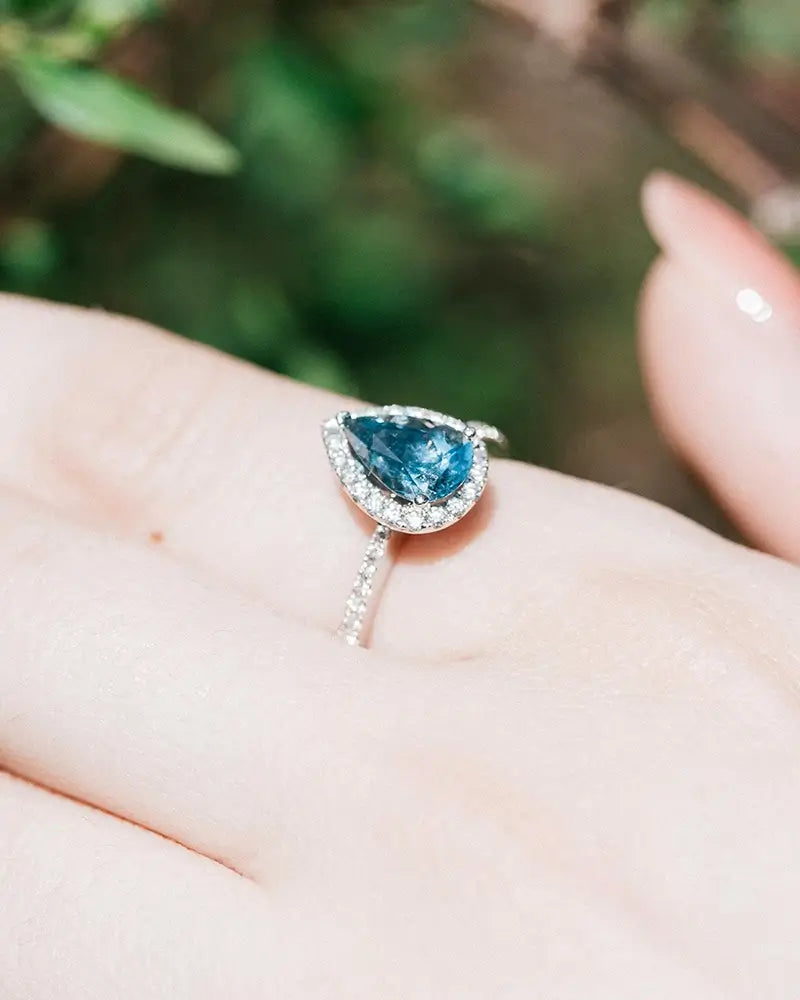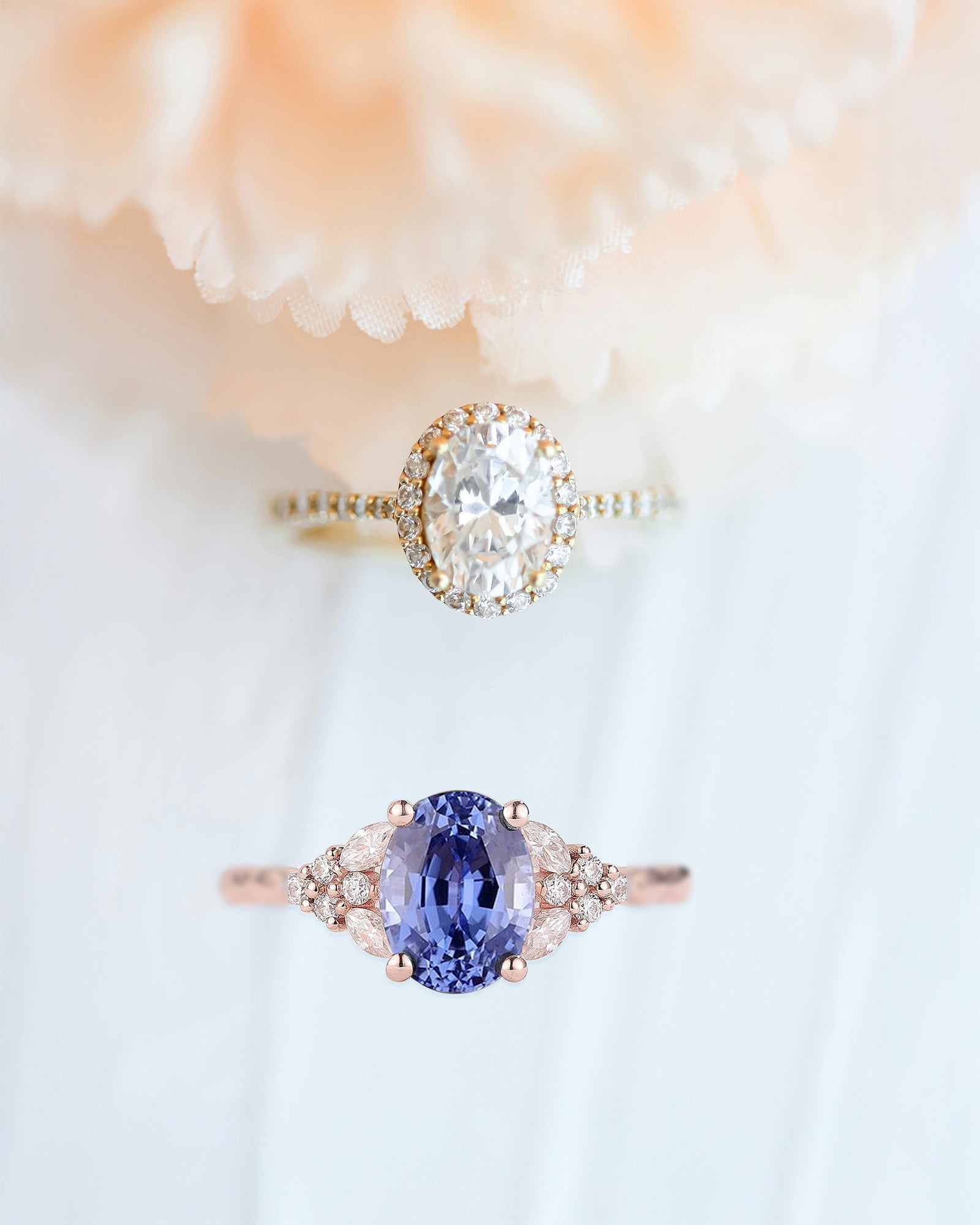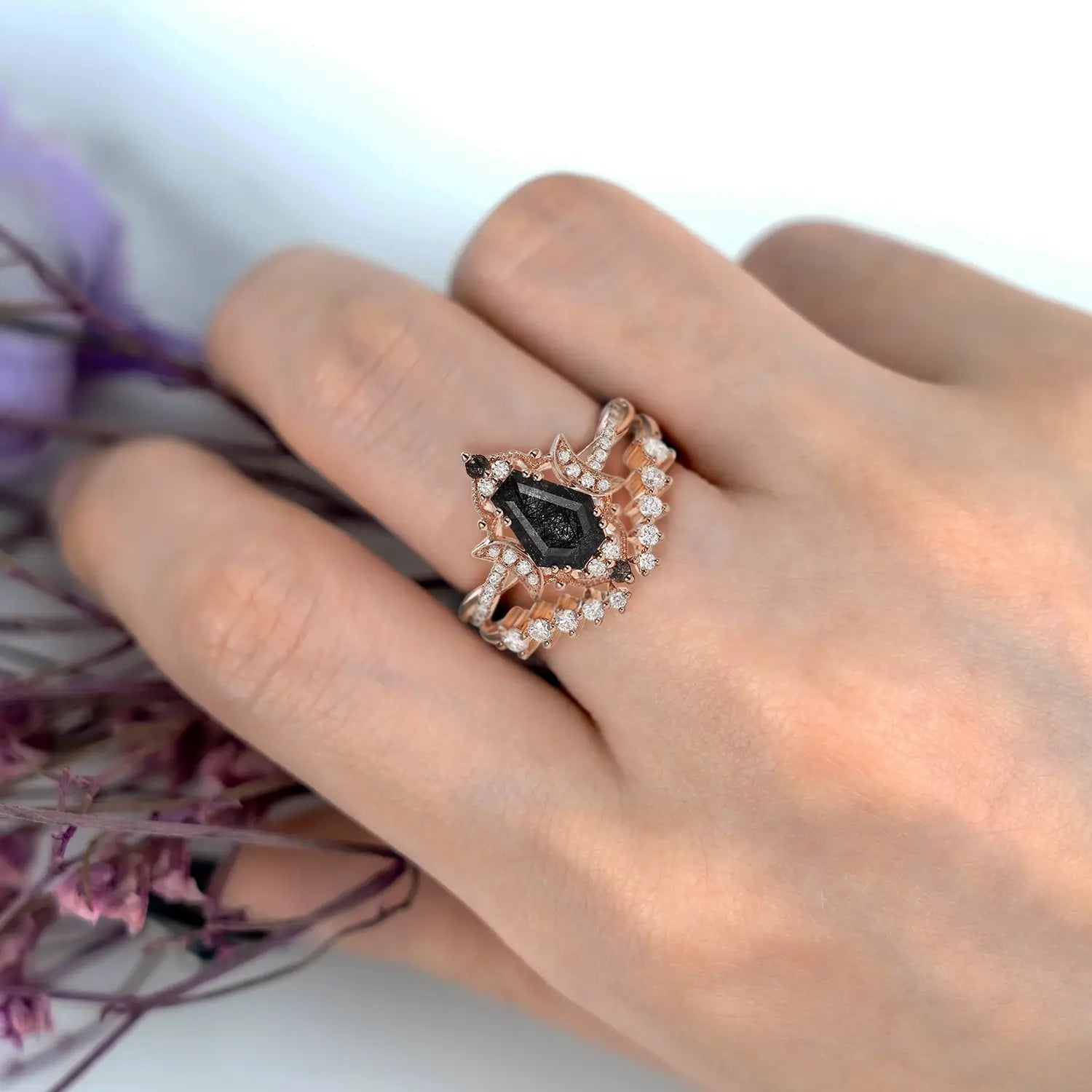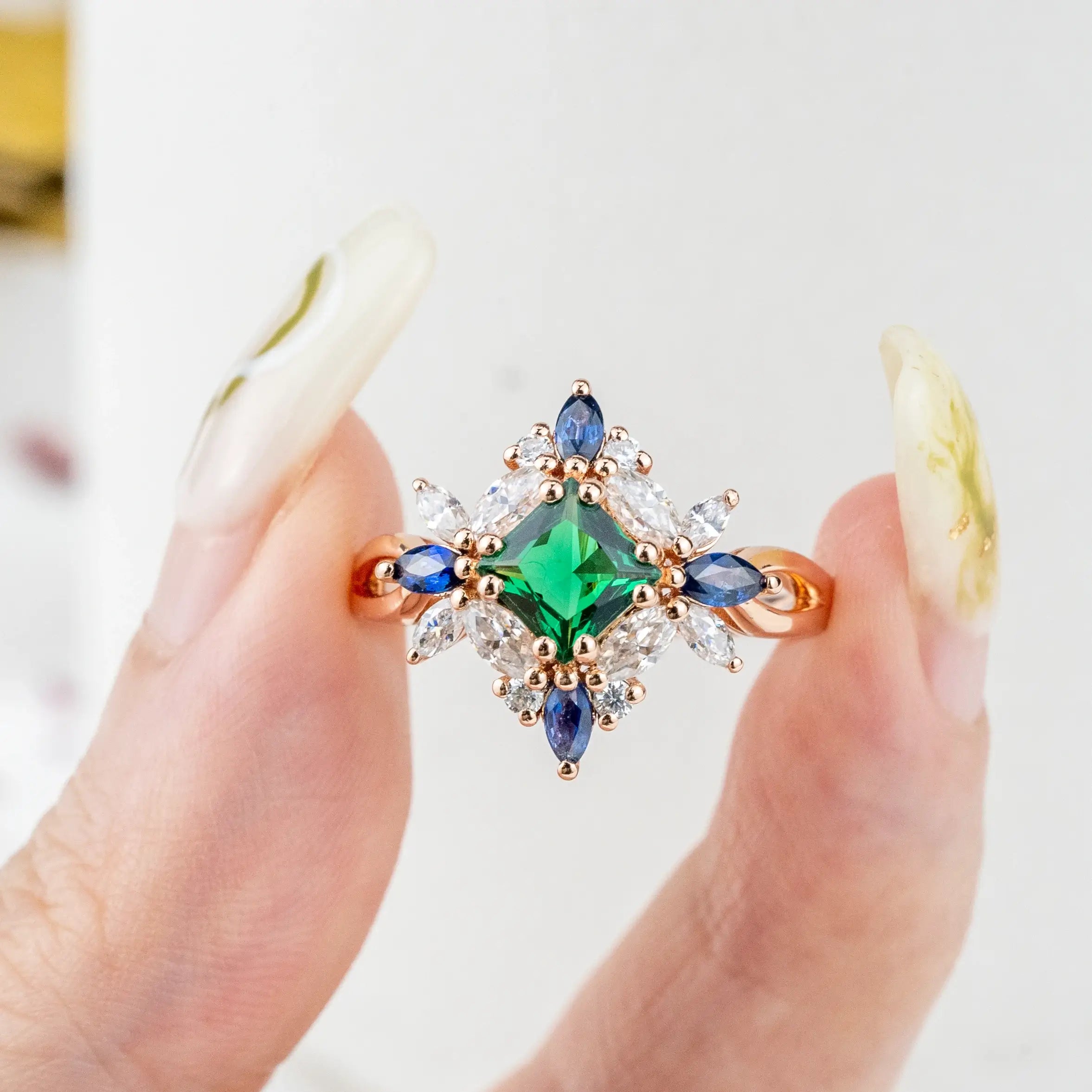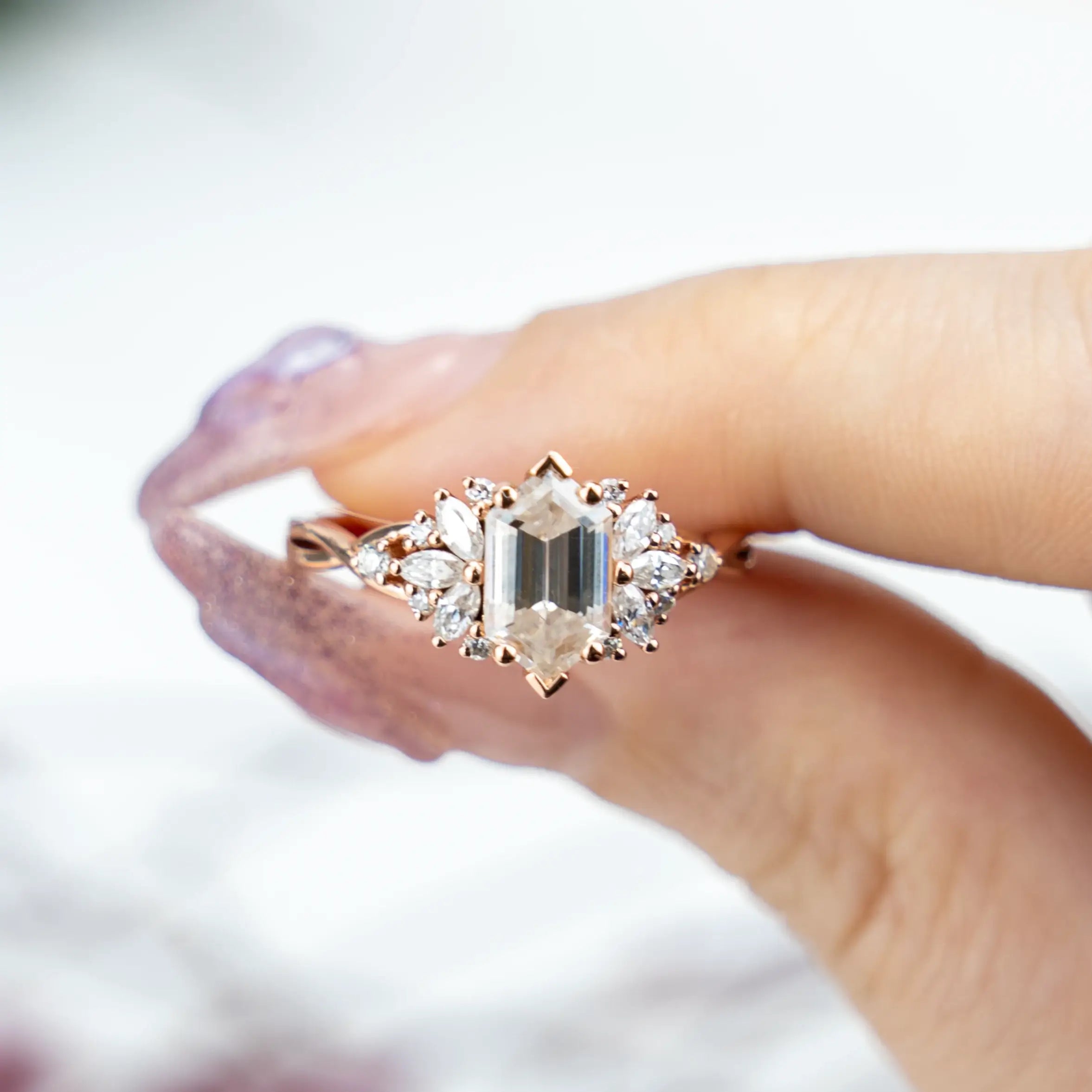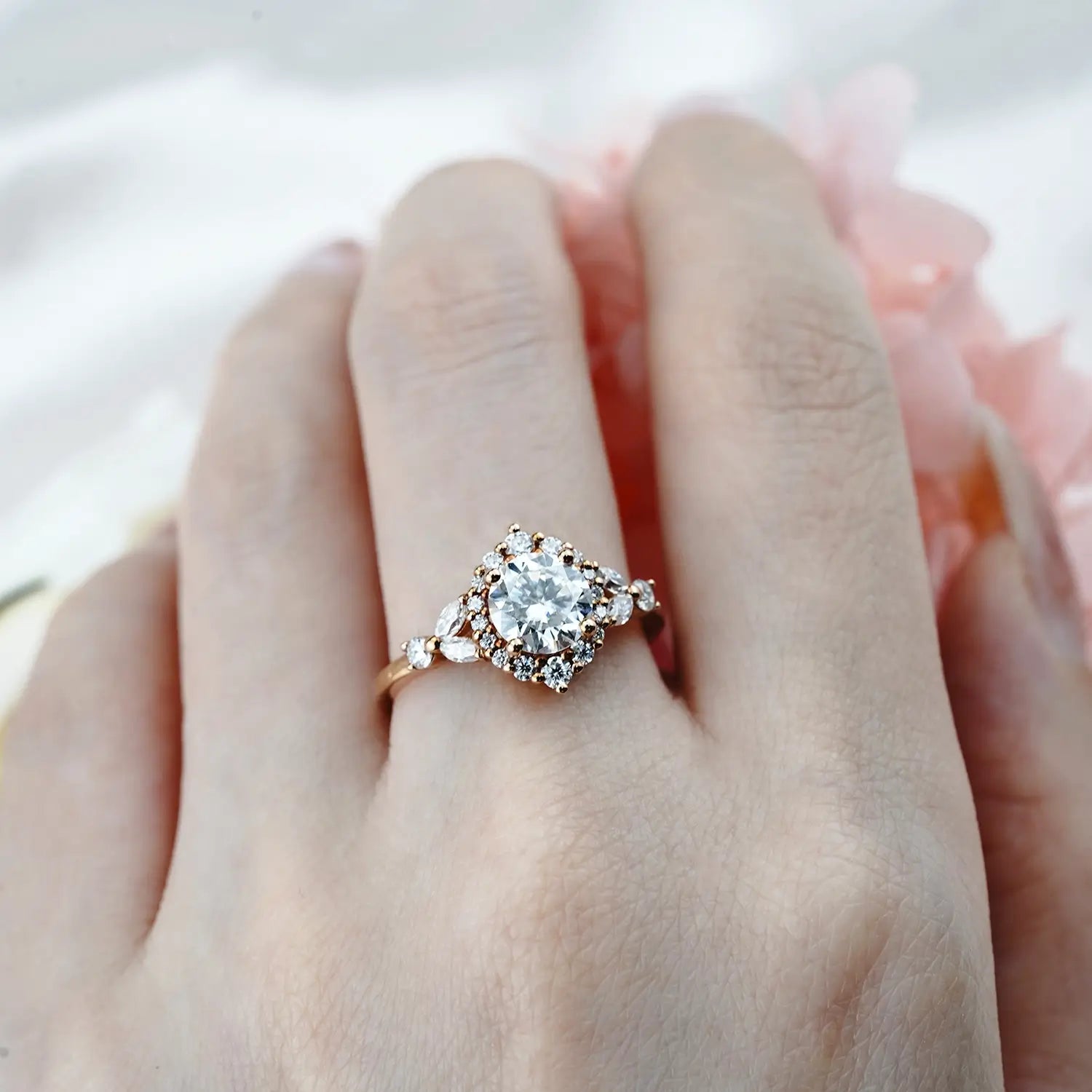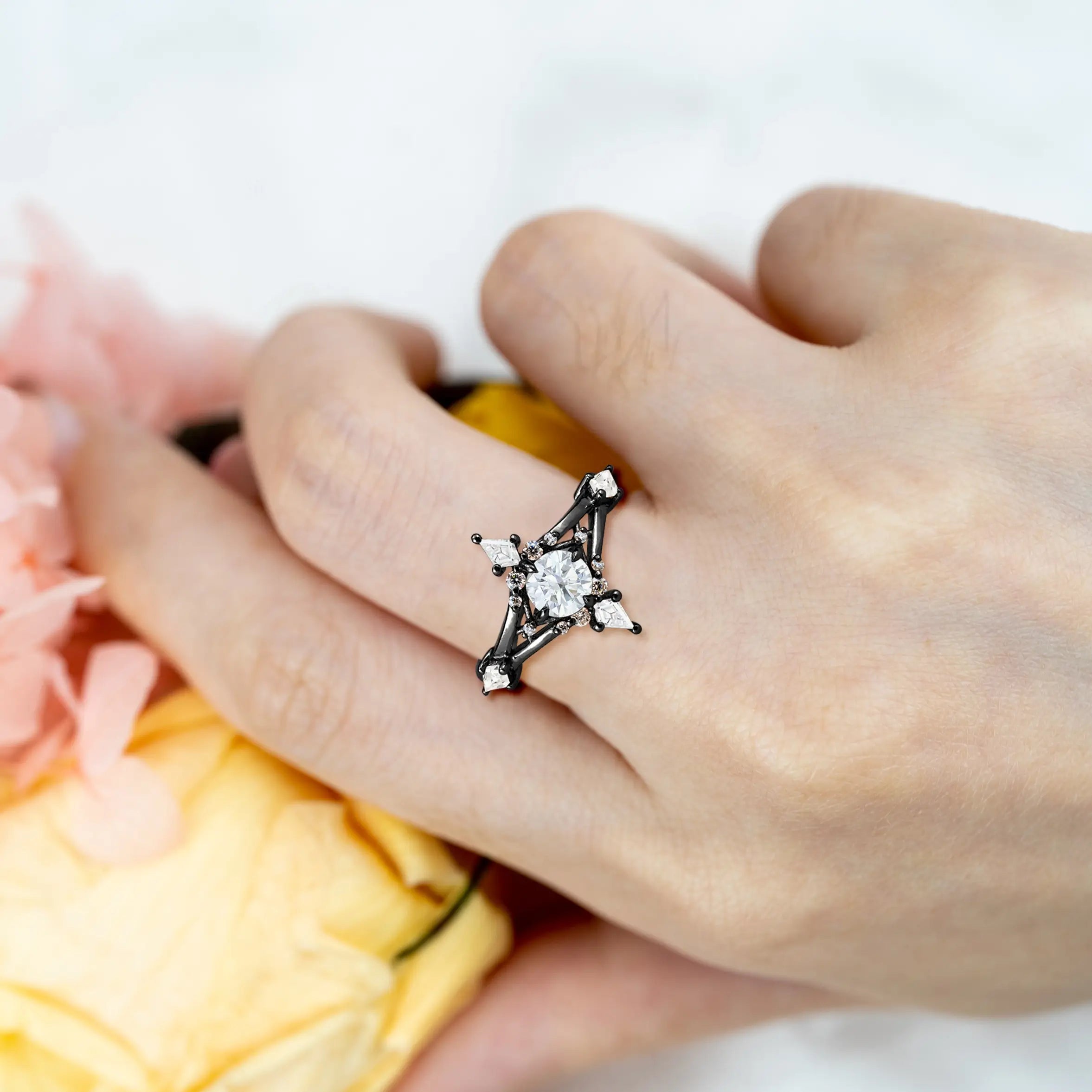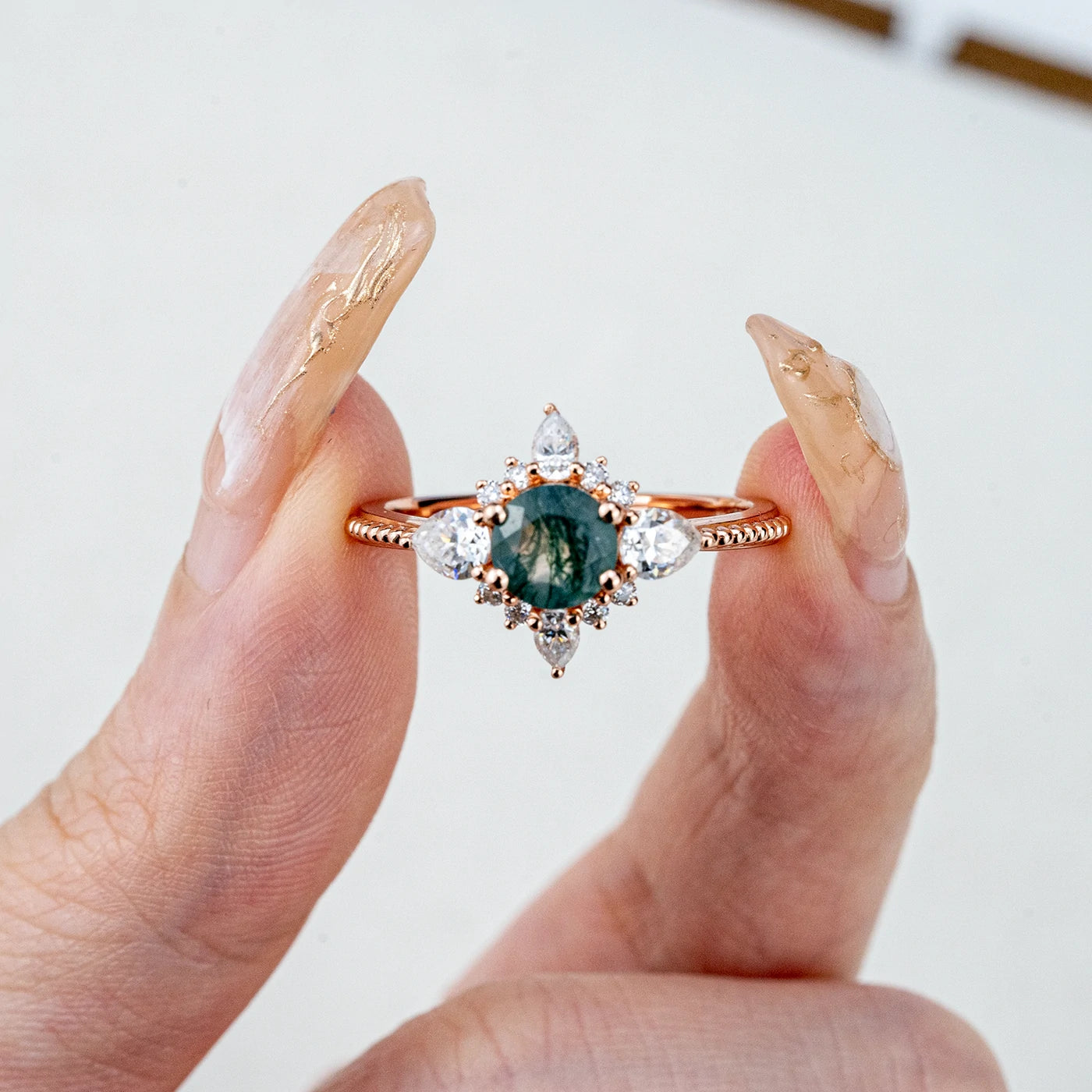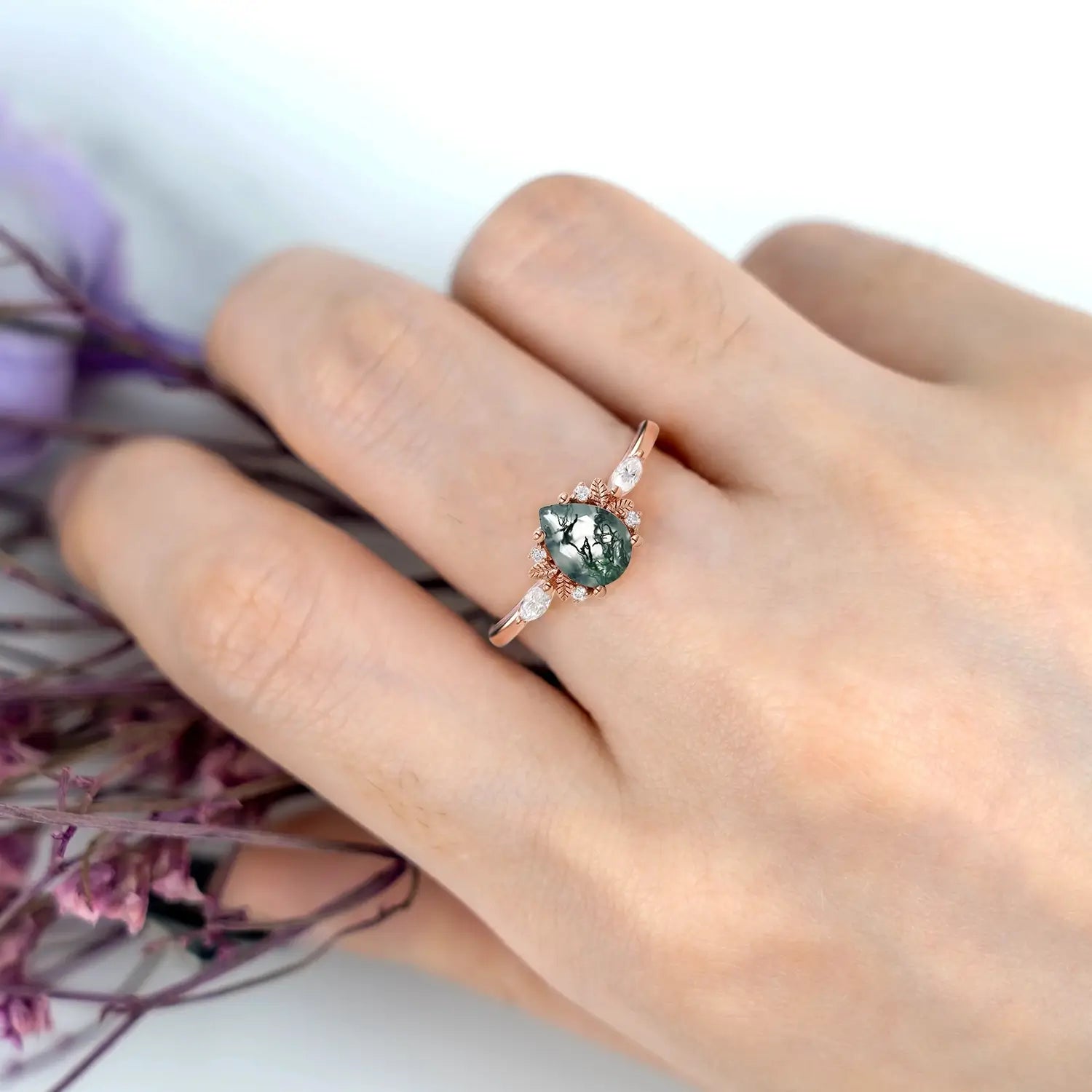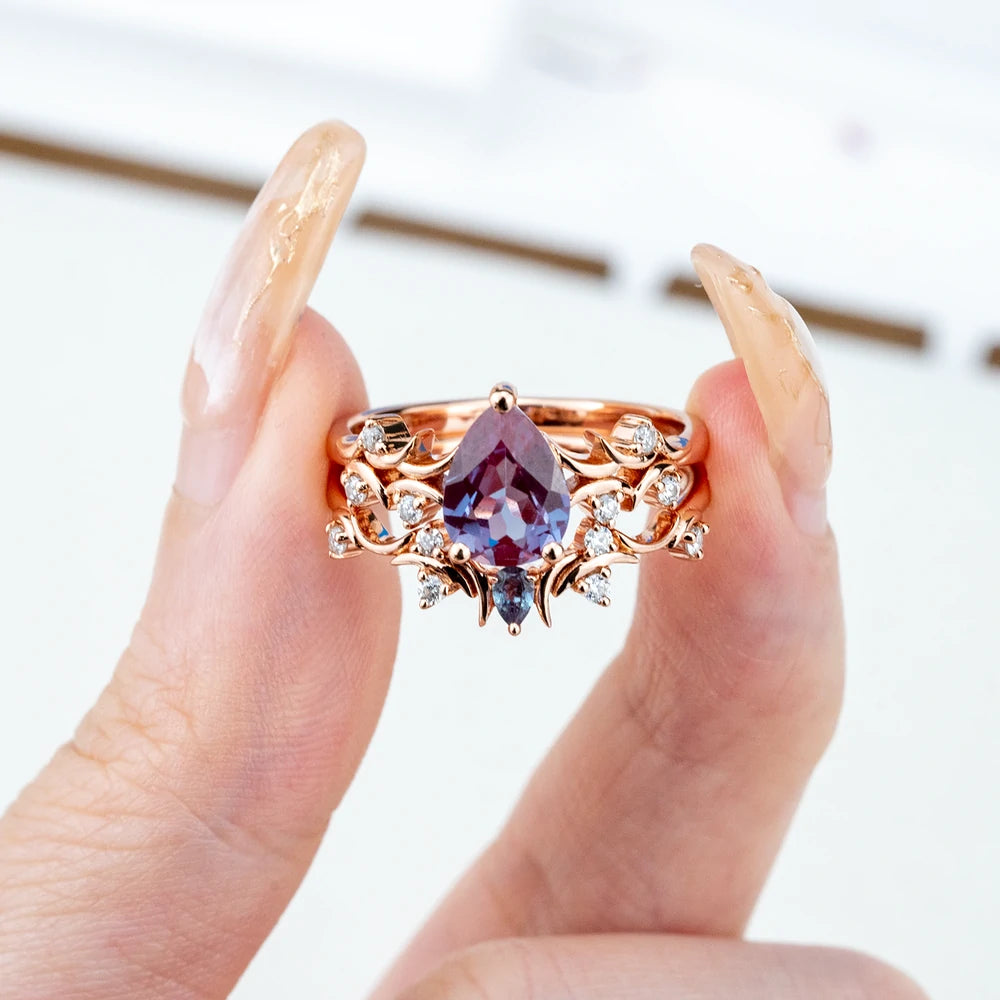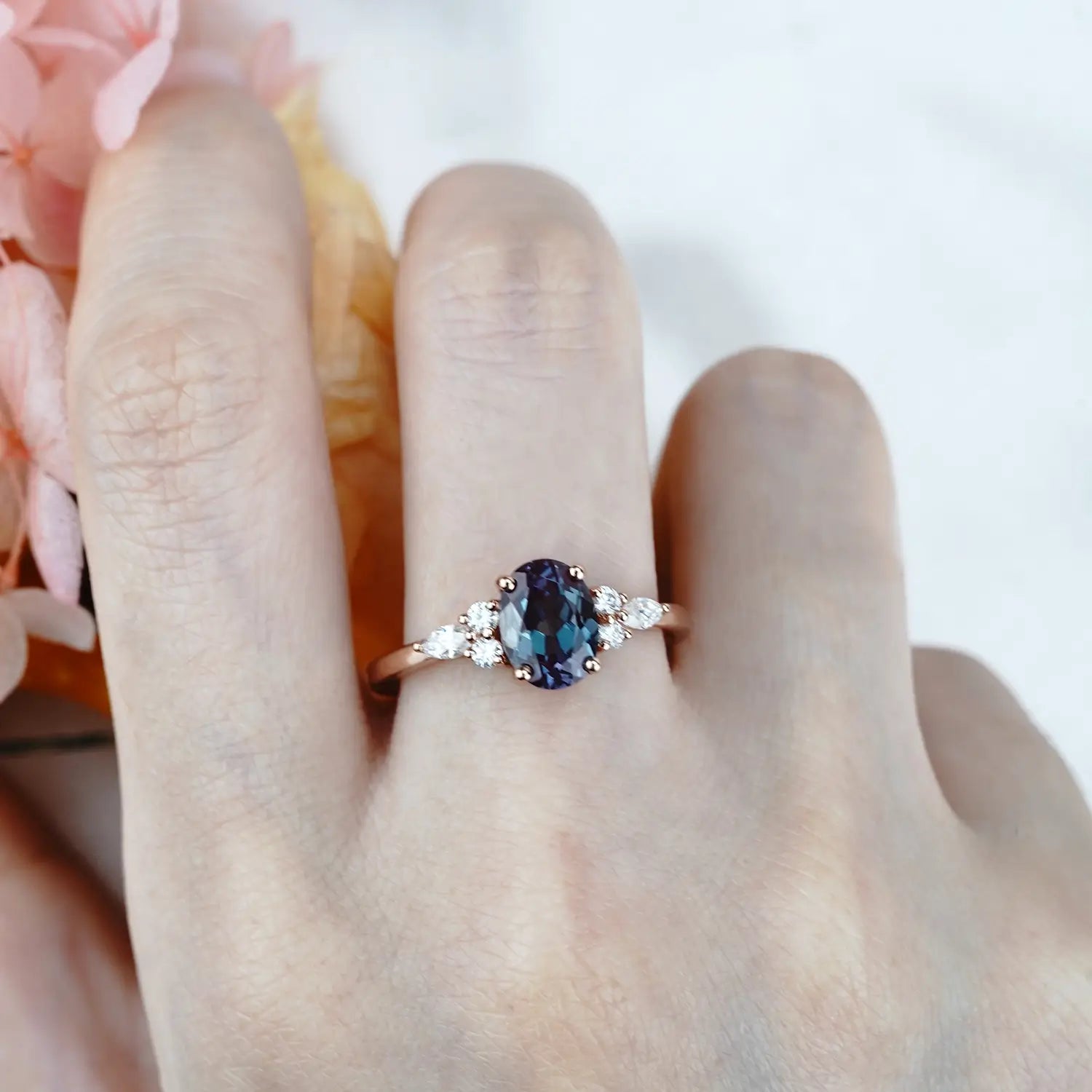This report draws together market data, cultural patterns and design signals to show what matters to modern couples: value that does not sacrifice meaning, sustainability that feels tangible, and personalization as a basic expectation rather than an extra.
Introduction — Culture, Cost and Desire
In conversation and in commerce, the engagement ring has stopped being a single-story object: it is simultaneously an heirloom, a design brief, and a social signal. For many couples in 2025, the ring must respond to immediate financial realities while also carrying an ethical and aesthetic narrative—one that can be told in a brunch conversation, on social feeds, and in family rooms for generations.
The economic dimension is easy to summarize numerically: average spends have drifted downward relative to the early 2020s as alternative center-stone categories—especially lab-grown diamonds and moissanite—capture market share and allow buyers to allocate budgets toward craft and customization. According to a recent industry study, the average engagement ring spend in the United States is around $5,200, down from higher averages earlier in the decade.
Why this matters for jewelers: a customer who might previously have wanted a traditional diamond is now more likely to trade raw carat for story—custom settings, colored side stones, inscribed messages, and a brand narrative about sourcing and sustainability.
How We Arrived Here — A Brief History of Engagement Rings
The ring as a token of betrothal is ancient and mutable. From Roman iron bands to medieval ecclesiastical practice, to the 20th century's modern marketing revolution, the engagement ring's meaning has shifted with social and economic contexts. The now-iconic dominance of the diamond—partly the result of organized marketing campaigns in the 20th century—should be read as a historical episode rather than permanent law. A succinct history is cataloged in public historiography and summarizes how cultural norms and commerce conspired to make diamonds the default choice for much of the 20th century. Wikipedia
That history matters because present choices are made with three layers in mind: tradition (a family story or an expected symbol), aesthetics (shape, color, and proportion), and belief (whether the ring must be mined, created, or something in between). Jewelers who understand the arc—from symbolism to supply chain—can craft offers that meet each layer with authenticity.
Gemstones & Center Stone Choices in 2025
The center stone remains the chief visual and emotional anchor of an engagement ring. But what that anchor is—natural diamond, lab-grown diamond, moissanite, sapphire, emerald, or an organic stone like moss agate—has become a deliberate expression of personal values and aesthetics.
Natural Diamonds — Legacy and Value
Natural diamonds continue to occupy the high-luxury tier for buyers seeking a geological narrative and perceived long-term value. The technical language of cut, color, clarity and carat—popularized by certification systems—remains essential to evaluate quality. The Gemological Institute of America (GIA), with its long-established grading framework, is still the reference point for assessing natural diamond quality, and its educational materials explain the four Cs that underpin valuation.
GIALab-Grown Diamonds — The Pragmatic Choice
Chemically and optically identical to natural diamonds, lab-grown stones have reshaped buyer calculations: for similar visual quality, lab-grown stones can often be purchased at substantial discounts versus mined equivalents. The changing economics have affected market averages and retailer assortments, creating space for larger visible carat weights or higher-quality cuts within the same budget. At the same time, industry debate about long-term resale value and carbon footprints continues—buyers who choose lab-grown gems are often motivated by ethics, price and modernity in roughly equal measure.
Moissanite — Fire and Affordability
Moissanite has matured from a budget alternative to a design-forward choice. Its exceptional brilliance and lower price create an opportunity for buyers to select bold shapes and elaborate settings while maintaining sparkle and perceived size. Because moissanite is visually distinct from diamond in its facet light behavior, it is often chosen by customers who want maximum radiance rather than an attempt to replicate a diamond identity.
Colored Gemstones & Semi-Precious Choices
Colored gems—sapphires, emeralds, rubies, alexandrite—function both as color statements and as shorthand for personal stories. Past decades of celebrity preference and high-fashion visibility have normalized colored centers; buyers choose them for singularity and heirloom potential. At the more bohemian end of the spectrum, organic and semi-precious stones such as moss agate, moonstone and morganite appear in nature-inspired rings that emphasize texture, inclusions and the intimate quality of imperfection.
Design Language — Settings, Shapes & Surface
Design preference in 2025 is pluralistic. Minimalist solitaires sit beside ornate vintage clusters; halo settings remain popular for their ability to amplify perceived size, while unique silhouettes—pear, marquise and oval—are notable because they deliver personality as a design choice rather than mere novelty.
Solitaire & Minimalist
The minimalist solitaire is again prized for cultural clarity: it reads as modern, adaptable and focused on proportions. For many, a well-cut single stone communicates restraint and taste.
Vintage & Cluster
Filigree, milgrain edges and clustered stones speak to craft. They are favored by customers seeking heirloom vibes or tactile detail—rings that look aged and storied rather than freshly produced.

Nature-Inspired & Organic
Leaf motifs, soft vine bands, and settings that cradle irregular stones answer the demand for rings that appear grown rather than made—an aesthetic congruent with environmental narratives and artisanal techniques.

Shape Trends
Round brilliants remain timeless, but elongated and asymmetrical shapes such as marquise and pear are increasingly visible on red carpets and social feeds—giving rise to customers who want a silhouette that distinguishes them at first glance.

Price Brackets & Economic Patterns
Price is the axis around which many decisions rotate. The market shows a clearer segmentation in 2025: buyers on tighter budgets opt for lab-grown or created stones and devote saved funds to customized design; mid-market buyers often mix a smaller natural or lab center with colored side stones; high-end buyers purchase rare natural stones and elaborate metalwork.
Empirical surveys indicate a shifting average: the national average engagement ring cost in the United States is reported to be roughly $5,200—evidence that the rise of synthetics has influenced the median spend and that many buyers now trade carat size for bespoke design and better finishing.
| Tier | Typical Spend (USD) | Common Stones | Design Focus |
|---|---|---|---|
| Budget | $500 — $1,500 | Moissanite, Semi-precious | Simple bands, single stones |
| Mid | $1,500 — $5,000 | Lab-grown diamond, sapphire, higher moissanite | Customization, better metals |
| Luxury | $5,000 — $15,000 | Natural diamonds, emeralds, rubies | Hand-finished settings, unique cuts |
| High Luxury | $15,000+ | Fancy color diamonds, exceptional gems | Bespoke commissions |
Market intelligence that tracks polished diamond pricing and inventory, such as independent price reporting and trade analysis, helps retailers anticipate margin pressure and plan assortments accordingly. See trade reporting for broader market context.
Ethics and Sustainability — Claims, Complexity, and Consumer Values
Sustainability has moved from marketing garnish to procurement reality: consumers increasingly ask where metals were sourced, whether diamonds are conflict-free, and if lab-grown production used renewable energy. The simple story—lab-grown = better for the planet—is not universally true; the energy intensity of some production processes complicates the ethical calculus, and credible reporting on manufacturing provenance is uneven. This complexity is increasingly visible in independent news and trade coverage.
For brands, the takeaway is operational: document your supply chain; be transparent about recycled metal sourcing; publish clear statements about energy usage for created stones where possible; and, above all, avoid vague greenwashing language. Consumers reward clarity.
Customization: Process, Tools & Best Practices
Custom rings are no longer a boutique experiment; they are a core offering. A robust customization workflow follows a predictable arc: consultation → design (CAD + render) → approval → production (casting/stone setting) → finishing and QC. Online CAD previews and real-time price transparency reduce purchase anxiety and raise conversion rates.
Practical Steps for a Better Customer Experience
- Provide clear tiered options (stone type, carat ranges, metal choices)
- Offer CAD renders and angle views early in the sales funnel
- Outline timelines and return/exchange policies transparently
- Publish side-stone options by default (e.g., moissanite or diamond side stones)
Business insight: many customers reallocate funds saved from choosing an alternative center stone into better craftsmanship, bespoke engraving or heirloom packaging—thus increasing perceived value while managing raw material costs.
Predictions: What the Next 18 Months May Hold
- Further segmentation: clear product lines for “value custom” and “legacy custom”.
- AI-assisted design: faster CAD iterations and consumer-facing design assistants.
- Transparency as competitive moat: brands with concrete sustainability data will have a stronger story.
- Colored center stones will consolidate share: as tastes diversify, colored gems become mainstream rather than niche.
Conclusion — Design with Intention
The engagement ring in 2025 is not a single decision but a set of choices: center stone chemistry, cut and shape, social meaning, and craft. For brands and jewelers, the opportunity is to offer modular clarity: let customers choose what matters (value, story, ethics, or aesthetics), and make that choice feel like an act of authorship rather than compromise.
FAQ
Q: Are lab-grown diamonds “real” diamonds?
A: Yes. Laboratory-grown diamonds share the same chemical and optical properties as mined diamonds; they differ in origin and market positioning. Independent technical overviews and gemological literature explain these equivalences in detail. (See gemology references above.)
Q: Is moissanite a diamond simulant or its own category?
A: Moissanite is a distinct gemstone with a different optical profile. It is valued for its fire and affordability and is often chosen as an intentional alternative rather than an imitation.
Q: How long does a custom engagement ring take?
A: Typical timelines range from 4–12 weeks depending on complexity, stone sourcing, and finish requirements. CAD iterations and customer approvals are the main variables.
Q: How should I present sustainability claims?
A: Be specific. Cite recycled metal percentages, disclose whether lab-grown manufacturing used renewable energy, and provide certifications where applicable. Vague statements invite skepticism.


